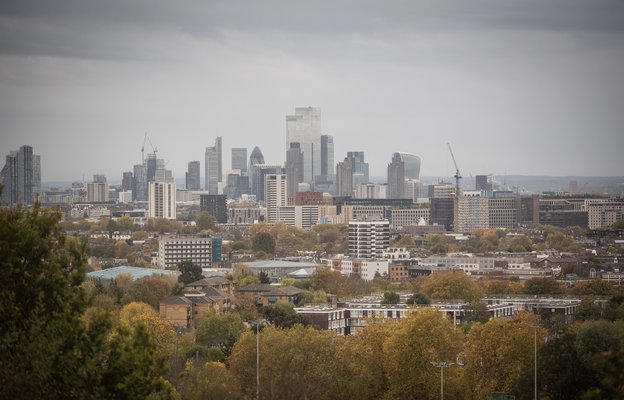
Work is meant to be the best route out of poverty. But in London, far too often, it isn’t enough.
More than 1.5 million adult Londoners live in poverty—and over half of them are in work.
Across the city, people are putting in long hours, sometimes juggling multiple jobs, and still can’t afford the basics.
Why does London have such a problem with in-work poverty?
In-work poverty in London is driven by three key factors:
- Low pay is all too common
- Many Londoners are in insecure jobs or can’t get enough hours
- Living costs here are among the highest in the country
Low pay across London
Proportion of London residents' jobs paid below London Living Wage by employment type (2005-2024)
Nearly 1 in 5 jobs (17.5%) in London is low-paid. That’s over 600,000 Londoners earning less than what they need for a basic standard of living.
And it’s getting worse. In the past year alone, almost 100,000 more workers have fallen into low pay.
We define low pay as earning below the London Living Wage - the hourly rate independently calculated to reflect the true cost of living in the capital.
Insecure work & insufficient hours
It’s not just about pay. It’s about hours, contracts, and security. Research from the Living Wage Foundation found that there are more than 800,000 insecure jobs in the capital.
The link between working hours and poverty is clear. In households where one or more adults work part-time (and none work full-time), 43% of people are in poverty.
Proportion of people in London in poverty by type of working household over time (1998/99 - 2022/23)
High living costs
It’s also much more expensive to live in London than elsewhere in the UK.
Some employers offer "London weighting" to reflect this. The real London Living Wage is set higher than the national rate for the same reason. But many employers still pay below what it actually costs to live in the city.
Take housing, for example. A one-bed flat in the lower quartile of London's rental market (ie the 25% most affordable flats) costs around £1,100 per month.
A full-time worker earning the London Living Wage would earn £2,021.79 a month after tax - leaving them around £900 after rent, before food, bills or travel.
And that’s for someone not classed as low paid. For the 600,000 Londoners earning below the Living Wage - or those earning it but working fewer hours - the squeeze is even tighter.
Where is low pay concentrated in London?
Low pay is a problem across every London borough. If we exclude the City of London, at least 1 in 10 working residents is low paid in every part of the capital.
But inequality is stark. Inner London boroughs like Westminster, Islington and Camden have relatively lower rates of low pay. In contrast, outer boroughs like Brent, Newham, and Barking & Dagenham see much higher rates.
Proportion of borough residents' jobs that are paid below London Living Wage (2024)
This may reflect how lower-paid workers are pushed further from the centre by rising housing costs.
Different demographics are also more likely to be low paid. For example, women in London are 30% more likely to be low paid than men. And according to research by the Living Wage Foundation, Black & minority ethnic Londoners are twice as likely to be low paid than White Londoners.
Which industries have the highest levels of in work poverty?
Main industry categories for those in in-work poverty (2022/23)
Many of the industries we rely on most have the highest levels of low pay and in-work poverty.
- 13% of Londoners in in-work poverty work in health and social care
- 12% work in administrative and support services, which includes cleaners, security guards, and temp agency workers
- 12% work in wholesale and retail, including roles like supermarket staff, sales assistants, and warehouse workers
If the people working these jobs disappeared, London would stop running. But too often, they are undervalued and underpaid.
What needs to change?
To tackle in-work poverty, we need all workers to be paid a fair wage, and to be able to work enough hours to make ends meet.
The best way employers can help achieve this is by signing up to the Living Wage and Living Hours campaigns - commitments to pay fairly and offer secure, predictable working hours.
No one should work hard and still live in poverty.


